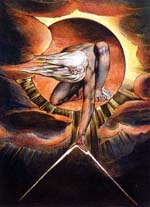I mentioned in my post on Vinge’s A Deepness in the Sky that I don’t believe the Singularity is a problem. Commenters Dripgrind and Coveysd asked about that, and I decided the answer was worth a post.
Vinge came up with the Singularity in Marooned in Realtime (Analog, May-August 1986; Bluejay, 1986), which I read in 1987 when it came out in Britain. I thought then that the Singularity was a terrific SF idea—the idea was that technological progress would spiral so fast that something incomprehensible would happen. In the book, most of humanity has disappeared, and the plot concerns the people who missed it. (Incidental on-topic aside—the reason I re-read Marooned in Realtime is for the journal of one of the people who missed it. The plot, the ideas, the other characters have all worn fairly thin over time, but Marta’s journal as she lives alone on a far-future Earth remains compelling.) I was astonished at reaching the end of the book to discover a little afterword in which Vinge claimed to believe in the coming Singularity. I thought it was a great idea for a story, maybe even two or three stories, but too obviously silly for anyone to really believe.
 Since then, the Singularity has come to be an object of almost religious faith in some quarters. In The Cassini Division, Ken MacLeod has a character call it “the Rapture for nerds,” and that’s just how I see it.
Since then, the Singularity has come to be an object of almost religious faith in some quarters. In The Cassini Division, Ken MacLeod has a character call it “the Rapture for nerds,” and that’s just how I see it.
I understand how Vinge, a brilliant writer who had worked in computing for years, could, in 1986, have seen how incredibly quickly computers had developed, and extrapolated that to other things. I mean it’s like someone seeing in 1950 that a hundred years before the fastest speed was twenty miles per hour and now it was supersonic and extrapolating that line straight forward to having FTL by 1983. Nevertheless, I regard this as a kooky belief. Yes, in 1950 we were supersonic, and gosh, we’re in 2008 and…we’re still traveling in jets only very slightly faster than in 1950, and cars, and subways, and buses. Even computers are only incrementally better than they were in 1987, and this isn’t entirely because they’re mostly handicapped with Windows. I’m not saying they haven’t improved. I’m just saying that if we’d carried on the extrapolated curve between 1950 and 1987 we’d have something a lot better. Instead, we got the internet, which is a lot better, which is a new thing. That’s what people do. They come up with new things, the new things improve, they have a kind of plateau. It doesn’t go on forever. A microwave is shiny and science fictional but a toaster makes better toast, and most people have both, and few people have much in their kitchen that’s much newer. And people are still people, traveling fast, using the net, and though they may go through paradigm shifts, I don’t think we’ll ever get to the point where understanding the future would be like explaining Worldcon to a goldfish, and even if we did, it wouldn’t be very interesting. If you want to argue about how much closer to the Singularity we are than we were in 1987, fine, but I’d suggest taking a look at The Shock of the Old: Technology in Global History Since 1900 by David Edgerton first. But my view remains, nice SF idea, not going to happen.
I wouldn’t care at all about people believing in the Singularity, any more than I care about them believing in the Great Pumpkin, if it wasn’t doing harm to SF for everyone to be tiptoeing around it all the time.
What irritates the heck out of me is that so many other people have come to have faith in this, despite zero evidence, and that this is inhibiting SF. It’s a lovely science fiction idea, and so are Gethenians, but I don’t see people going around solemnly declaring that we must all believe there’s a planet out there with people who only have gender once a month and therefore nobody should write SF about gendered species anymore because of the Gethenian Problem. Yet somehow the Singularity resonated to the point where Charlie Stross called it “the turd in the punchbowl” of writing about the future, and most SF being written now has to call itself “post-Singularity” and try to write about people who are by definition beyond our comprehension, or explain why there hasn’t been a Singularity. This hasn’t been a problem for Vinge himself, who has produced at least two masterpieces under this constraint. But a lot of other people now seem to be afraid to write the kind of SF that I like best, the kind with aliens and spaceships and planets and more tech than we have but not unimaginable incomprehensible tech. (Think Citizen of the Galaxy or pretty much anything by C.J. Cherryh.) I recently asked about this kind of SF in my LiveJournal and only got one recommendation for something I wasn’t already reading. Maybe it’s just a fashion, but I blame the Singularity—and that, to me, is the Singularity Problem.









